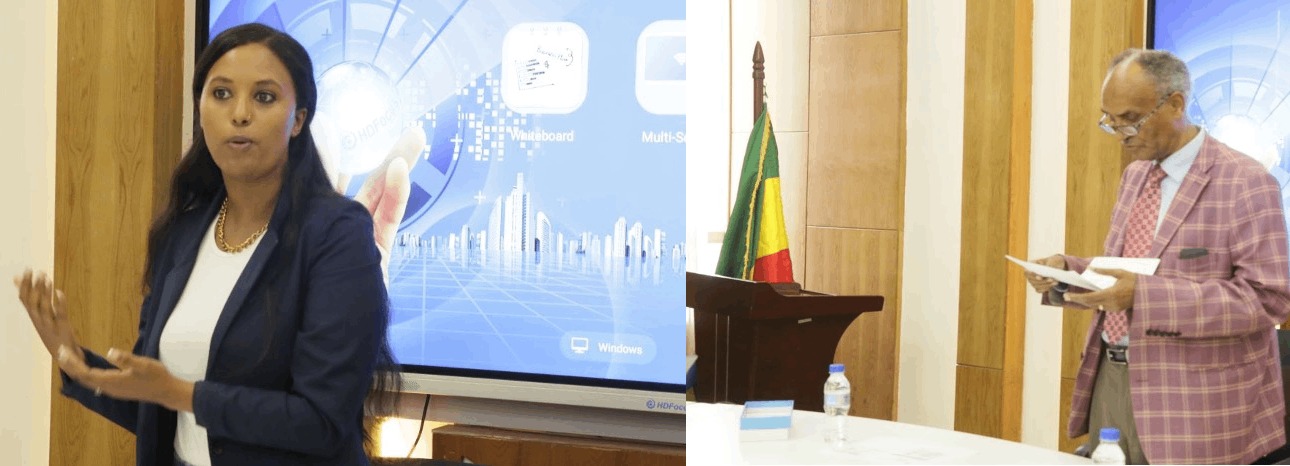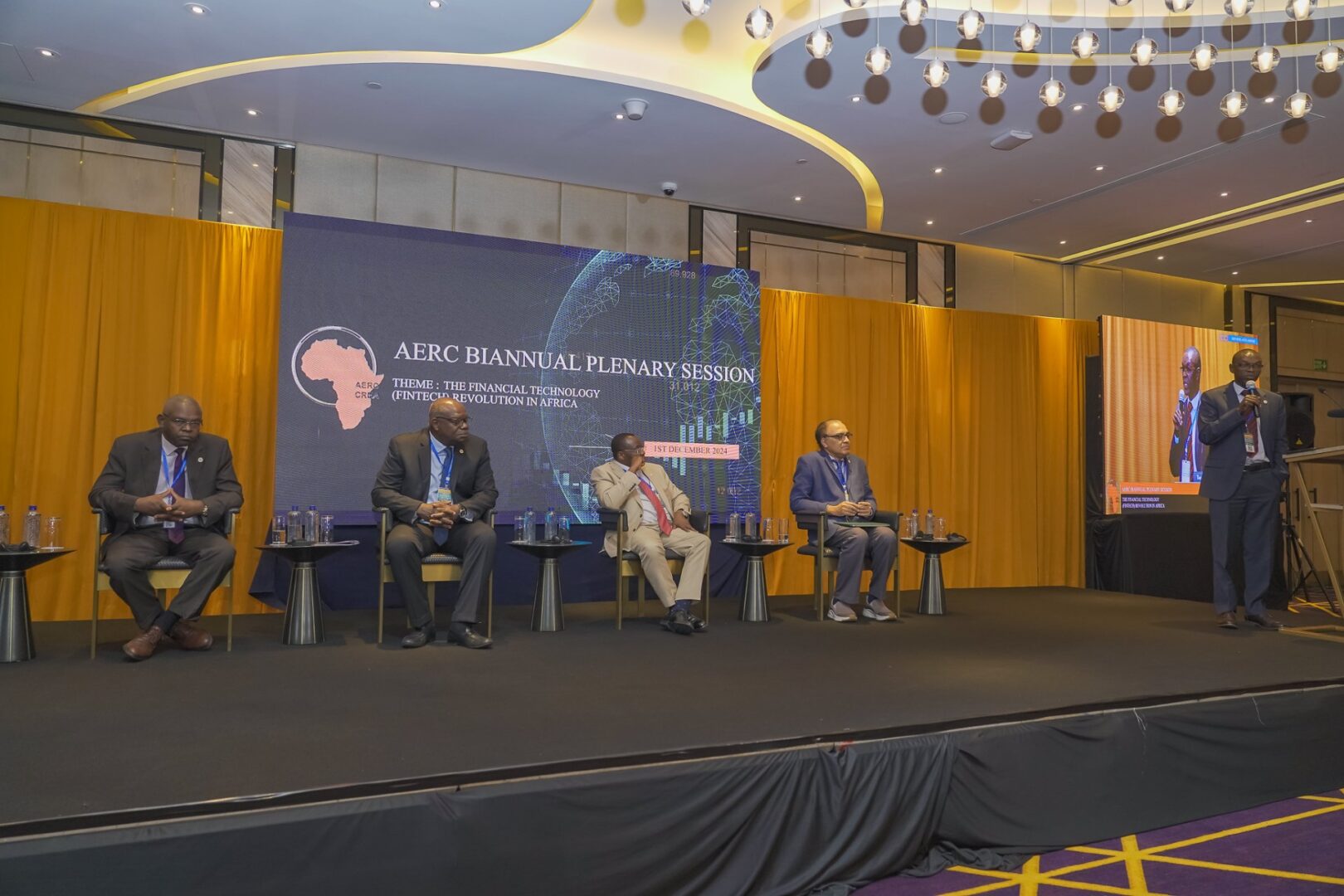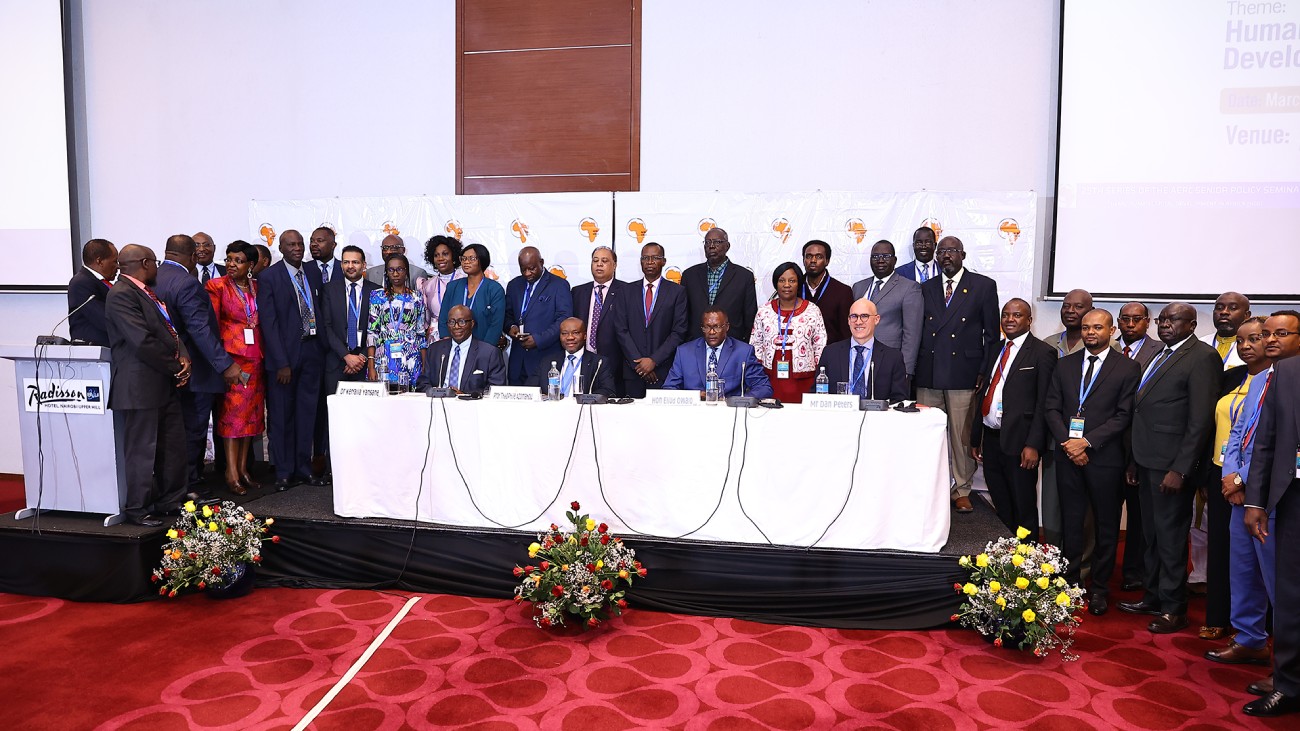

Capacity Building Training on Census and survey data in Ethiopia
September 22, 2023The African Economic Research Consortium (AERC) in collaboration with the Policy Studies Institute (PSI) conducted a two-day capacity building training program in Addis Ababa, Ethiopia on September 21-22, 2023. The training program focused mainly on two topics: Census and Survey Data in Ethiopia and Policy Briefs. The session on Census and Survey Data in Ethiopia provided participants with a comprehensive understanding of the basic concepts related to data collection, analysis, and interpretation. The session also addressed the characteristics and depth of data available through censuses and surveys in Ethiopia. The methodology of data collection was also discussed.
This first session was led by a team from the Ethiopian Statistical Service (ESS), which meant that participants had the opportunity to learn directly from experts in the field. The instructors and participants actively participated in the session through facilitation and question-and-answer sessions. This interactive approach allowed for deeper exploration of the topics and encouraged participant engagement. By addressing these aspects of census and survey data, participants gained valuable insight into the data collection process, the types of data available, and the methods used. This knowledge is essential for conducting research, policy analysis, and evidence-based decision-making.
During the opening of the training, H.E. Prof. Beyene Petros, Director General of the Policy Studies Institute, emphasized the importance of quality data for evidence-based decision-making. H. E. Prof. Beyene stressed that the application of appropriate methodology is crucial in conducting any research. Furthermore, he emphasized the importance of considering and implementing suitable sampling frames, sample designs, and data collection techniques in research projects.
Dr. Selamawit Gebregziabher, the coordinator of the training, thanked all the individuals who helped make the training possible, including the International Growth Center (IGC). She underscored the goal of training being to guide participants on the journey from data to policy briefs. Dr. Selamawit also mentioned a previous training on publishing that was conducted a few months ago.
Dr. Selamawit stressed the importance for researchers at PSI to have a clear understanding of the types of data available through Ethiopian statistical service. By being aware of data availability, researchers can easily utilize it and avoid duplication of efforts. She also advised researchers to minimize their efforts in collecting primary data when high-quality secondary survey data are already available. Dr. Selamawit emphasized the importance of quality data in translating research findings into meaningful decisions. She acknowledged that the duration of the training, which was only two days, may not be sufficient to comprehensively cover all aspects. However, she expressed her belief that the training conducted on those days will serve as inspiration for future training programs. Dr. Selamawit explained that the purpose of the training on Policy Briefs was to provide participants with the knowledge and skills needed to effectively communicate policy recommendations to decision makers and stakeholders.
Mr. Fekade Asrat from the Ethiopian Statistical Service provided training on how to create survey data. During the training, he covered several important topics related to surveys, including the objectives of statistical surveys, survey designs, sections and variables, and key statistical indicators of results. Fekade also went over the discussion of data sources, emphasizing the importance of knowing where data come from and how reliable they are. Further, he explained the frequency of data collection and highlighted whether it was done regularly or as a one-time survey. Understanding the nature of the data, whether it comes from surveys or was obtained through a census, is critical to proper data analysis and interpretation. His training aimed to equip participants with the knowledge and skills needed to effectively produce survey data.
Mr. Dawit Berhanu of the Ethiopian Statistical Service addressed various issues related to surveys in his presentation. He discussed the objectives of surveys and emphasized that they are conducted for specific purposes, such as collecting information, assessing opinions, monitoring trends, evaluating policies, or producing statistical data.
Dr. Tewodros Mekonnen of the IGC Office in Ethiopia focused on Policy Briefs. The goal was to provide participants with a comprehensive understanding of how policy briefs are constructed, including both concepts and practices. During the sessions, participants gained knowledge on development of policy briefs, methods for effectively capturing policy makers, identifying target audiences, and understanding their specific needs. In addition, effective communication strategies that can lead to policy impact were explored.
Ultimately, the sessions aimed to equip participants with the necessary tools and techniques to write effective policy briefs. In this way, participants will be better prepared to engage with policymakers, effectively communicate key messages, and have a real impact on policy development and decision-making processes.






